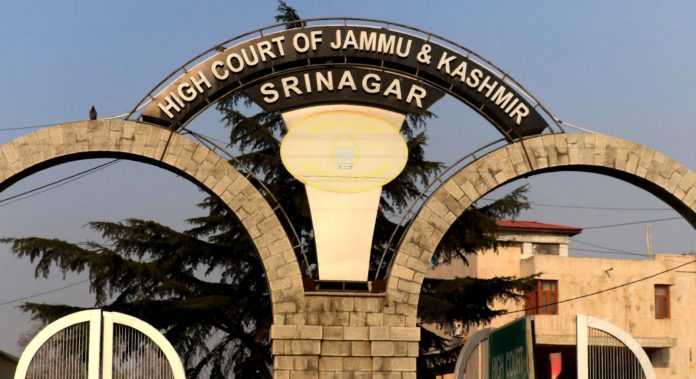The High Court of Jammu & Kashmir and Ladakh has directed the Deputy Commissioner (DC) of Srinagar to take over the management and properties of the Shree Bajrang Dev Dharam Dass Ji Mandir located in Sathu Barbar Shah, Srinagar. This decision was made following a petition filed by Prem Jay Mishra, who claimed to be the Mahant of the temple. The court’s division bench, comprising Justice Sanjeev Kumar and Justice M.A. Chowdhary, has instructed the DC to also oversee the daily puja and other religious rituals at the temple, which will be managed by a committee formed by the DC.
Mishra’s petition challenged an earlier decision made on December 22, 2017, by the District Magistrate of Srinagar, which had revoked an order permitting Jai Ram Dass to perform puja at the temple and had handed over the temple’s management to the Baba Dharam Dass Ram Jeevan Dass Trust. Mishra argued that the former pujari, Mahant Jai Ram Dass, had appointed him as the temple’s Mohatamim in 2015, granting him the right to conduct religious rituals.
The court noted that there was no definitive record regarding how the temple property was dedicated, and it presumed that the Maharaja at the time had established the temple and allocated land to support its management. The court highlighted that the position of Mohatamim or Manager of a temple is not hereditary, and no individual can claim the right to this position as a successor.
The court also emphasized that, due to the chaotic situation in Kashmir following the onset of terrorism in 1990, many temples were abandoned, and their properties were either sold or encroached upon by vested interests. The court found that none of the parties involved in this case had legal documentation to substantiate their claims to manage the temple or perform rituals there.
To prevent further damage to the temple properties, the court ordered the DC Srinagar to take control of the temple and its properties and to ensure that daily religious activities are carried out. The local police have been instructed to assist in this process. The court also mandated that a bank account be opened in the name of the deity or temple, where profits from the temple’s properties would be deposited and used for the temple’s management and welfare.
Additionally, the court allowed parties claiming the right to perform puja or manage the temple’s properties to pursue their claims in civil court, provided the DC is included as a defendant in such cases. All ongoing civil suits regarding the temple must also include the DC as a party to prevent collusion between the parties involved.




